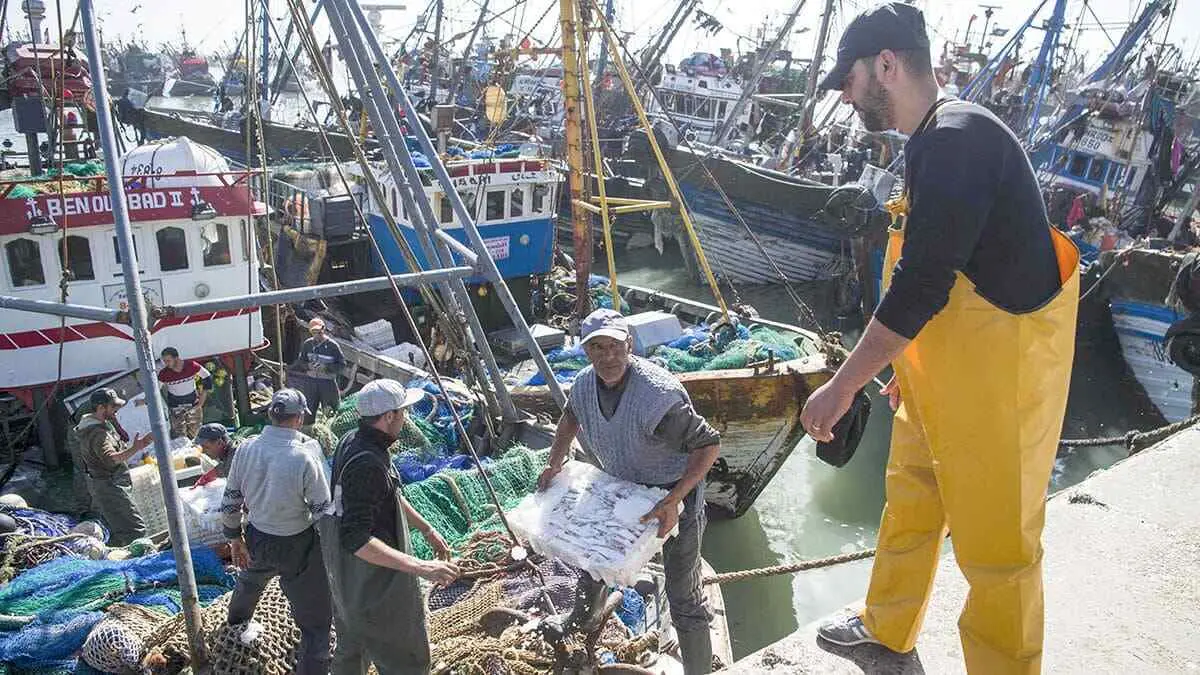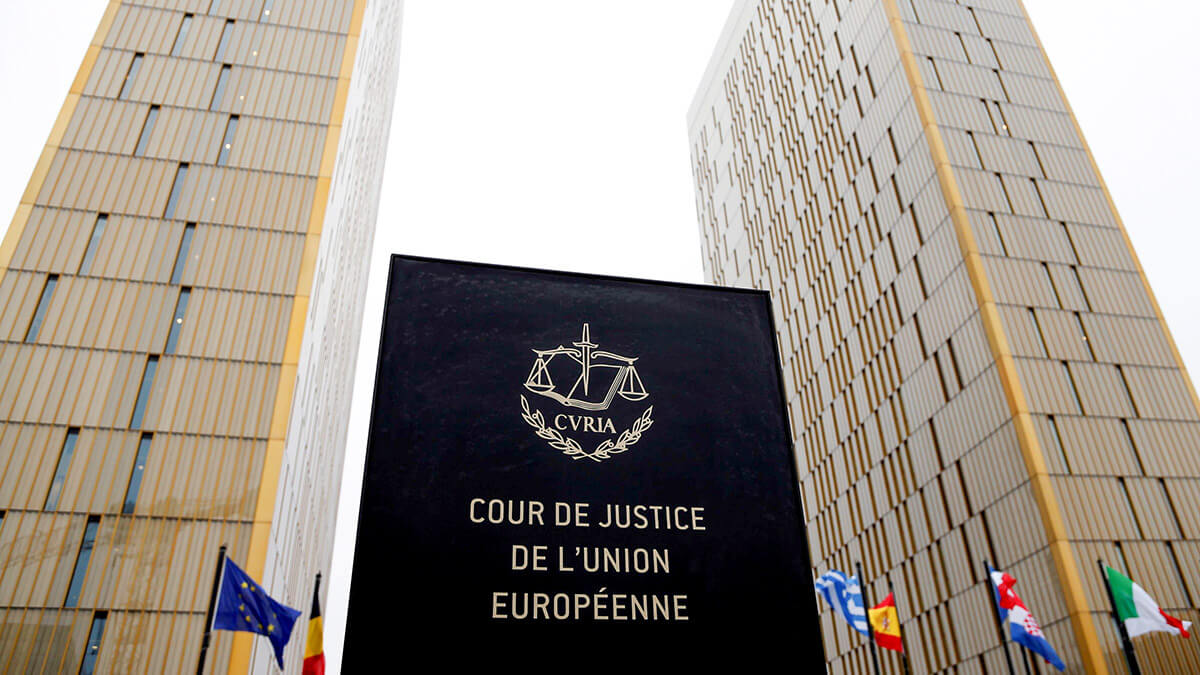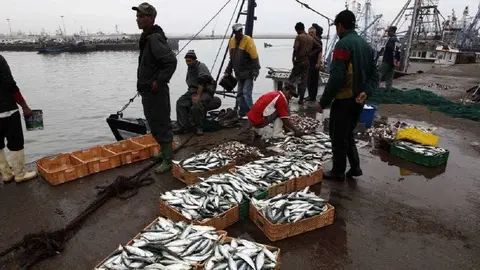European Court of Justice overturns EU-Morocco fisheries and agricultural agreements

The Court of Justice of the European Union (CJEU) has confirmed the annulment of the fisheries and agricultural agreements between the European Union (EU) and Morocco on the grounds that they violated the rights of Western Sahara at the time they were concluded.
In other words, the European Court of Justice understands that for the EU to seal an international agreement with Morocco on this region requires the consent of the people of Western Sahara, a consent that does not exist, according to the European Court.
The annulment of the fishing agreement, which had already been suspended since July 2023 following a ruling by the General Court of the EU (GCEU), fully involves the fishing fleets of Andalusia, the Canary Islands and Galicia, since 92 of the 138 licences that fish in the area are related to Andalusian, Canary Islands and Galician fishing activity.
As for the annulment in the agricultural area, there will be a 12-month extension ‘in view of the serious negative consequences for the Union's external action that its immediate annulment would entail’ and ‘for reasons of legal certainty’.

The CJEU has thus put an end to the dispute over the fisheries agreement with Morocco and its protocol by dismissing the appeals of the European Council and the European Commission, in line with the judgment of the EU General Court of 2021 and the conclusions of Advocate General Tamara Capeta.
The application of this protocol expired on 17 July 2023, which meant the suspension of activity, something that particularly affects Spain.
The ruling argues that the pacts reached in 2019 were concluded without the consent of Western Sahara. ‘In 2019, it brought a series of actions before the General Court for annulment of the Council decisions approving those agreements. Finding that the Union and Morocco had concluded agreements applicable to Western Sahara without having obtained the consent of the people of Western Sahara, as a third party to the disputed agreements, the General Court annulled the disputed decisions, while temporarily maintaining their effects,’ the court ruling noted.

The future of Western Sahara, a disputed territory since Spain abandoned the area as a colonising power in the 1970s, is still in dispute.
Morocco claims sovereignty over the territory and has proposed a formula of broad autonomy for Western Sahara under its own sovereignty, which would give the Sahrawi authorities ample room for manoeuvre in managing their own affairs and leave defence and international policy issues in the hands of the Moroccan state.

Morocco's challenge is to develop the territory as much as possible in all areas, including all types of economic activities.
This has been more of a political issue in recent decades, but it has also had an economic aspect that has to do with exploitation rights and various economic activities in Sahrawi territory, and the European judiciary has pronounced itself on this issue. ‘Over the years, the conflict has also begun to affect the legality of economic agreements concluded, in particular, by Morocco and which affect the exploitation of the natural resources of Western Sahara and the waters adjacent to this territory’, the CJEU pointed out, adding that ’the implementation of an international agreement between the Union and Morocco in the territory of Western Sahara must obtain the consent of the people of Western Sahara’, a consent which the European court considers does not currently exist.
In contrast to Morocco's autonomy proposal for Western Sahara, there is an opposing version, which is that of the Polisario Front, the organisation that calls for the holding of a referendum on independence for the Sahrawi people, which, according to various analysts, is difficult to achieve due to various problems, such as that of drawing up a census for the vote.
Another issue to bear in mind is that Morocco's proposal to establish real and formal sovereignty over Western Sahara in accordance with United Nations (UN) resolutions has received broad international support. More than 100 countries have backed Morocco's initiative, considering it the most serious, credible and realistic way of resolving the Saharawi dispute, including major powers and nations such as the United States, France, the United Arab Emirates, Germany, Israel and Spain.

The fact that Morocco has effective sovereignty over Western Sahara would allow the Moroccan state to adopt all kinds of binding agreements on the Sahrawi territory without having to wait for the resolution of any judicial body, something that could be beneficial for the territory in terms of allowing greater dynamism and development of economic activity.
The proposal regarding the Polisario Front's territory has less international support on the international stage, including that of Algeria, Morocco's great political rival in the Maghreb, especially after the Algerian state's decision to break diplomatic relations with the Moroccan kingdom in August 2021 after accusing the latter of ‘hostile acts’ and due to deep political divergences on issues such as Western Sahara.
En 2023, notre MAE Nasser Bourita, a envoyé un message clair à l’Union européenne et ses différentes institutions dont la Cour européenne de justice : "Le #Maroc décidera de l’avenir de la coopération avec l’UE dans le domaine de la pêche" 💪#Europe #المغرب_أولا #SaharaMarocain pic.twitter.com/DcCXJdwd7b
— Morocco First 🇲🇦 (@TheRealMarroqui) October 4, 2024
Now, the CJEU ruling states that the EU's fisheries and agricultural agreements did not give Western Sahara any rights or advantages over the exploitation of resources, which Morocco could have. The repercussions and consequences of this decision will have to be seen in the future.
Morocco, through Foreign Minister Nasser Bourita, has already sent a clear message to the European Union and its various institutions, including the European Court of Justice: ‘Morocco will decide on the future of cooperation with the EU on fisheries’.
Morocco does not consider itself affected by the CJEU decision
The Kingdom of Morocco does not consider itself in any way concerned by the decision of the Court of Justice of the European Union on the agricultural and fisheries agreements, the Moroccan Ministry of Foreign Affairs has affirmed, stressing that the Kingdom has not participated in any of the phases of this procedure.
‘Morocco is not a party to this matter, which concerns, on the one hand, the European Union and, on the other hand, the Polisario Front supported by Algeria. Morocco has not participated in any of the stages of this procedure and therefore does not consider itself in any way affected by the decision’, the Ministry specifies in a statement.
The Ministry speaks of ‘legal errors’ in the ruling. ‘The content of this decision contains obvious legal errors,’ said the Ministry of Foreign Affairs, which denounced “blatant political bias”.
The North African country also demands respect for international agreements in order to enjoy legal certainty. ‘Morocco demands that the Council, the European Commission and the EU member states take the necessary measures to respect their international commitments, preserve the achievements of the partnership and provide the Kingdom with the legal security to which it is legitimately entitled, as a partner of the EU on several strategic issues,’ the Ministry of Foreign Affairs said.
The Moroccan kingdom calls, as always, for respect for its territorial integrity and unity and considers Western Sahara as its own territory. ‘Morocco reiterates its constant position of not subscribing to any agreement or legal instrument that does not respect its territorial integrity and national unity’, the Moroccan Ministry of Foreign Affairs indicated.









